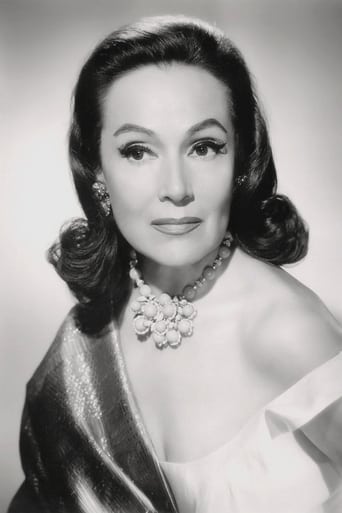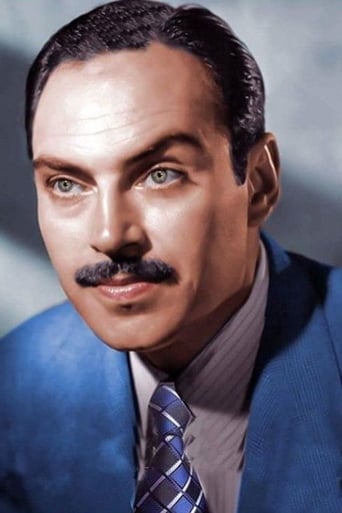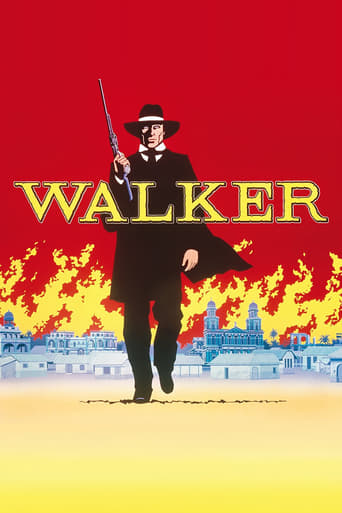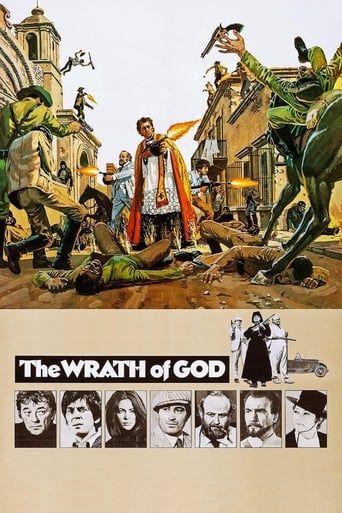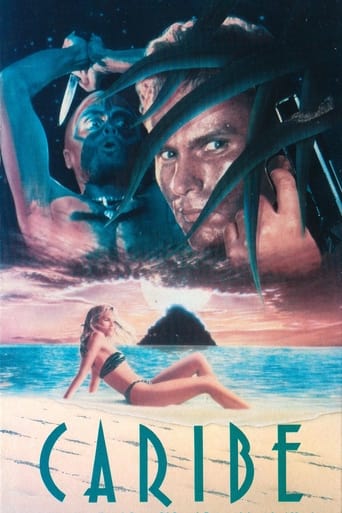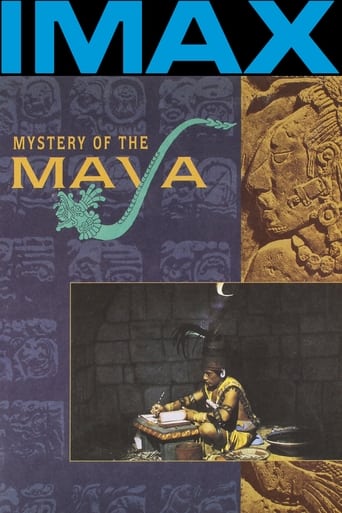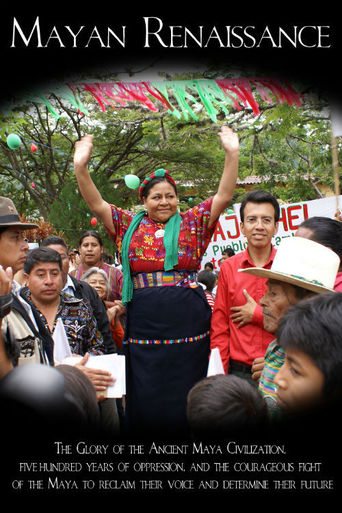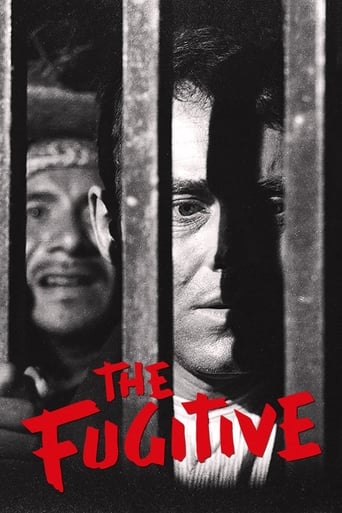
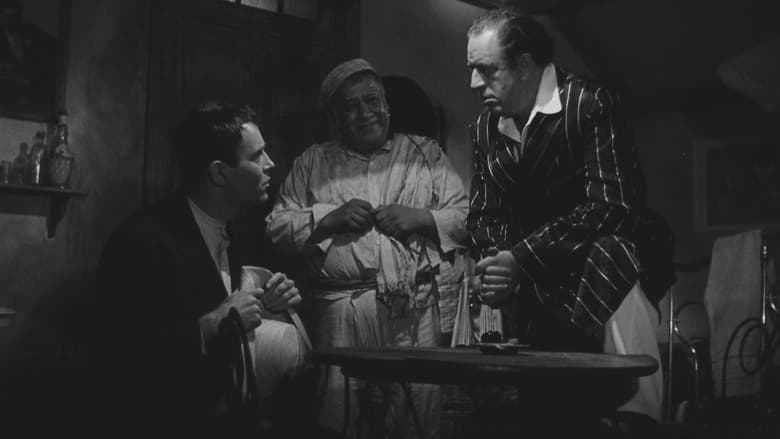
The Fugitive (1947)
Anti-Catholic and anti-cleric policies in the Mexican state of Tabasco lead the revolutionary government to persecute the state's last remaining priest.
Watch Trailer
Cast
Similar titles
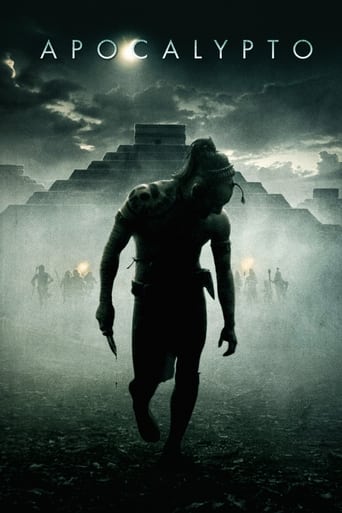
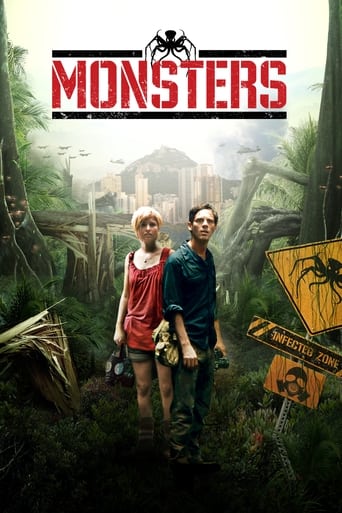
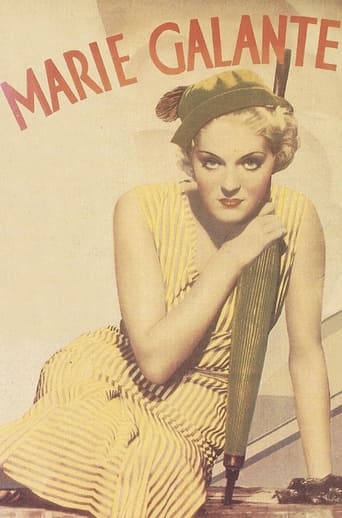
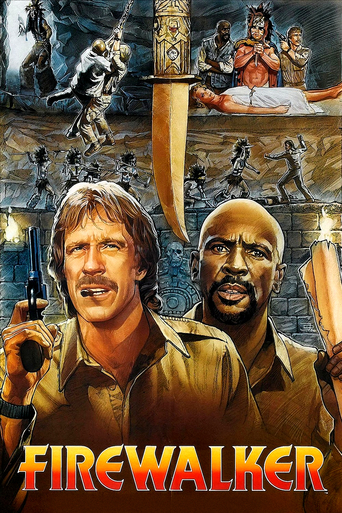
Reviews
Yawn. Poorly Filmed Snooze Fest.
Why so much hype?
Fun premise, good actors, bad writing. This film seemed to have potential at the beginning but it quickly devolves into a trite action film. Ultimately it's very boring.
It’s fine. It's literally the definition of a fine movie. You’ve seen it before, you know every beat and outcome before the characters even do. Only question is how much escapism you’re looking for.
This is one of several films that John Ford adapted from well-regarded novels, as The Informer and The Grapes of Wrath, but lacking the depth or power of those earlier works. The film moves too far from the source novel. The Power and the Glory by Graham Greene is a morose, introspective tale, intensely personal and psychological. Ford turns it into a pictorial allegory, with more allegiance to Eisnestein's Que Viva Mexico and the Mexican film Maria Candelaria than to Greene's novel.The film is allegorical to a fault. Even if many sequences of The Fugitive are beautifully composed, on the whole it is an empty canvas. There never seems to be much urgency in the storyline, nor is there sufficient human dimension to the characters.I wonder if the Production Code stripped the narrative of any objectionable elements. Ford tones down the novel's moral dilemmas, particularly the self-deprecating, intensely bitter character of the priest, full of shame for his sins and his failure as a priest. The sanitized version eliminates any mention of his illegitimate offspring or the local designation as a "whiskey" priest as in the novel. The priest, stripped of his human dimension, is now merely a fugitive, and not much else.The pacing is slow, almost inert, and the fugitive, on the run from Mexican police during an anti-Catholic purge, does not engage us in his plight. Henry Fonda lacks any deep material to develop his personality. Similarly, Dolores del Rio has little opportunity to move beyond the static Madonna figure posturing. Some interest derives from J. Carroll Naish as a groveling Judas figure, and Ward Bond as a gringo renegade also running from the police. It is the formidable Mexican actor Pedro Armendariz who has the most vigorous presence as the officer in charge of the pursuit.An insistent musical score, loud and grating, fails to heighten emotions, and may be partially responsible for turning us away from the priest's dilemma.This is one of several films that employed distinguished Mexican cinematographer Gabriel Figueroa, noted for The Pearl and later for Luis Bunuel's Los Olvidados. The abstract backdrops of arches, town squares, rays of light streaking into abandoned churches, shawled peasant women and police officers on parade give The Fugitive a visual dynamic that is not reflected in the drama itself.
Of all of the John Ford films I've seen, this is the only one that I would classify as "artsy." That isn't to say his other films have no artistic merit. Absolutely not. He's got a long list of films that are artistically brilliant as well plenty of popcorn films too. But this is the only one where it feels like Ford got lost in experimenting and trying something different instead of making a more solid film with a good story. The plot is about a priest (Henry Fonda) in some fictional Latin American country trying to get away from a government that has denounced religion and is looking to eliminate all religious leaders.There's a lot of Christian symbolism in this one. If The Quiet Man was Ford's love letter to his Irish roots, this is Ford's love letter to his Catholicism. Both are deeply personal films for the director. The art-house feel of the film with the overtly religious nature of the story and its symbolism unfortunately will turn some viewers off. Some of the vitriol I've seen directed at this film on this basis is truly disturbing. I get not connecting with someone's religious or spiritual beliefs, but why react with hatred towards it? I don't get that. Nothing in this film warrants that kind of reaction. It's not offensive in the slightest. At its worst its simply dull. Bizarre, fascinating, and a very different film for Ford. Admittedly it's heavy-handed at times but I think it has value. It's certainly a beautiful-looking film. If you're a fan of Ford or Fonda, you really should see it at least once. It's different enough to warrant you try it.
This film started very slowly and is one of the worst melodramatic films I have ever seen. I continued watching it, as more and more very well known actors started showing up, so I thought surely it would get better, however, they all seem to be overacting, contorting their faces like they are in an old fashioned melodrama. "You must pay the rent". "I can't pay the rent" . The music is definitely the largest contributing factor in the "hammy" feeling of the film. It is overly dramatic like something from an old silent film, and gives that feel to the movie .The Graham Green novel has morals that are eternal, but this film, unlike many of the older films does not hold up well because of the over dramatizing. If you can stick with it long enough the moral of the story finally does comes through. The only saving grace were the scenes with the exquisitely beautiful face and more subtle acting of Delores Del Rio.
RKO RADIO Pictures presents An ARGOSY PICTURES/PRODUCTA MEX DESCONCIDA Production, THE FUGITIVE, Directed by John Ford, Written by Dudley Nichols, Based on the Novel "The Power and the Glory" by Graham Greene. Produced by John Ford, Merrion C. Cooper & Emilio Fernandez. Starring Henry Fonda, Dolores Del Rio and Pedro Armendariz. With: J. Carroll Nash, Leo Carillo, Ward Bond, Robert Armstrong, John Qualen, Fortunio Bonanova, Chris-Pin Martin, Miguel Indclan, Fernando Fernandez, Rodolfo Acosta, Mel Ferrer, Jack Pennick, Jose Torvay.It's always a great experience to "find" a hereto for unknown film, that is a title that we know very little about, if even of it's existence. Somehow or other we had never come across it, then suddenly, SHAZAM!, it's there! Such a film is this John Ford production of THE FUGITIVE. It happened about a year or two ago. There was a full blown outbreak of Insomnia in our household. This had to be on the overnight time between Fri-Sat or Sat-Sun. During those two late night periods, our ABC TV Affiliate shows old movies under the banner of Late Night Movie and Insomniac Theatre. The vast majority of films have been in their library since about ca. 1958. The bulk are from 1930's to the early 1950's RKO RADIO Pictures output. They had been released to the Television market as a huge package deal. And they were assembled under the umbrella title of "Movietime USA". (A lot of stations must still be exhibiting these films, which usually have "Movietime USA Presents" title cards replacing the RKO Radio Pictures traditional opening with the Trade Mark broadcasting Radio Tower.)Well, this movie came on and made us glad that we couldn't sleep. From its very beginning, the beautiful B&W Cinematography of some of the most beautiful locations, just grabs you in keeps you interest, piquing it all the while that its story is unfolded. And the scenario is not an original, made for screen play, being an adaptation of the Graham Greene novel, "The Power and the Glory".In the novel, the locale is described as a mythical Latin American country. But, Mr. Greene, without being explicit, leaves no doubt that the real location is in Mexico. And the screen version follows the lead, and makes it everything that is Mexican, but without a name.The tense, ever tense story starts out with a unit of Mounted Police, entering a village of mostly peasants, in search of an outlawed Catholic Priest, believed to be in the area. This is set in a time when the Church was designated as an illegal, outlawed organization and was persecuted mercilessly. The commanding Police Lieutennant(Pedro Armendariz), seems particularly driven, even to the point of being fanatically determined to capture and see each and every Priest in his State* executed by the firing squad.The story, as one may expect, portrays the degradation and hardships that the unnamed Padre (Mr. Fonda) endures in order to evade capture, imprisonment and a certain terminal rendezvous with the firing squad. And everywhere, complications enter the picture; a treacherous stool pigeon (J. Carroll Nash), a desperate, but beautiful Indian Lady (Dolores Del Rio), a Yankee Desperado/un Ladrone Yanquis(Ward Bond) all get wrapped up in complicating the safety of the Priest.But, danger is part of the job, reasons the Priest, who returns to the scene of his "Crimes", in order to serve his congregation. The story begs the question to the Priest and, indeed to all of us; would we do the "right thing", if we were put into such a position.Truly, THE FUGITIVE presents us with a John Ford Film of the greatest magnitude. It has none of the humor of the human race as portrayed in THE QUIET MAN, RIO GRANDE, THE LAST HURRAH or even THE MAN WHO SHOT LIBERTY VALANCE. But it does give us a full view of Humanity from a most serious perspective, much in the manner of his 1935 Oscar winning THE INFORMER.It indeed is a one of a kind movie. We can not think of any movie to which this could be categorized or classified. The power of the scenes, the rapidity of scene shifting and the power of the acting all keep our interest beginning to end. As a matter of fact, the great scenes are so animated and unsubtly done, with such greater than life, even operatic style as to render it a candidate for a silent version. Just watch it and see super-animated scene after scene.And much like Mr. Charles Chaplin, Pappy Ford renders his tale even more universal by designated titles, rather than names. Other than James Calvert, aka 'el Gringo'(Ward Bond) and Father Sierra (Jose Ferrer), there are no names. And this, Schultz, qualifies this as being described as being "Chaplinesque."The film ends up by, at first, seemingly in tragedy; but there is a sudden about face with a hopeful (if not exactly totally happy) ending. This is a great example of Film being made with love, care, purpose and a Spiritual Wish for a brighter future for all.NOTE * The term of State is used here as in our United States of America; for in our own Western Hemisphere, we have 2 other countries' that use this "State" as we do. In South America we have The United States of Brazil and just below our Southern Border, we have The United States of Mexico. Honestly!

